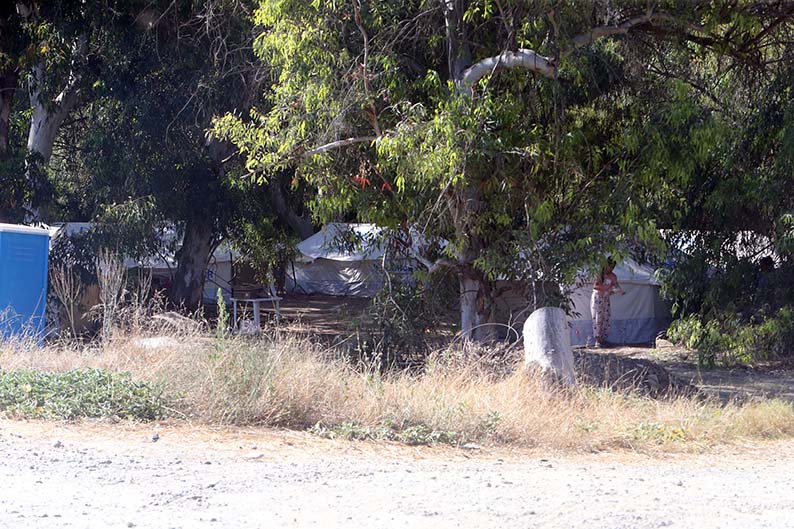Deputy Migration Minister Nicholas Ioannides on Thursday said a group of migrants stranded in the buffer zone will be “relocated in the next two to three weeks.”
His statements suggested other countries have accepted to host some of the individuals, though he did not say if Cyprus would allow any of them access to asylum proceedings.
“We have good indications that some countries will accept some of these individuals, and in the next two to three weeks, the matter will be resolved,” he said during the House interior committee.
Dozens of migrants have been stranded in the buffer zone for months, since a shift in the government policy meant that arrivals since mid-May were barred from accessing the Republic of Cyprus.
Most, if not all, came to the island via Turkey and a flight to the north.
“Cyprus will not carry the burden of Turkey’s actions,” Ioannides said. He charged Turkey “at the very least, tolerates the transportation of these people.”
He added that the migrants in the buffer zone admitted to coming to the north with flights or ships from Turkey. “We see a pattern that demonstrates the responsibilities of our neighbouring country.”
Additionally, a decision was also taken to remove the barbed wire placed across the Green Line. Works will begin in the next few days, and it will be used by the national guard or other requirements of the state, Ioannides specified.
Asked if Cyprus ready to handle a possible influx of migrants from the Middle East due to the wars, Ioannides specified authorities were well prepared. So far, there have been no arrivals by sea, only via airports, he said.
Commenting on the government’s aim to designate parts of Syria safe, he said the EU’s position has shifted towards creating the proper conditions and infrastructure in Syria, so that “people we wish to repatriate have the appropriate conditions.”
Presenting figures requested by the House interior committee, Ioannides said the migrant centres in Pournara, Kofinou and Limnes currently house 800 individuals on a temporary basis, until their asylum application is processed.
Regarding the government’s decision to suspend the processing of Syrian asylum seekers, the deputy minister said applications can be submitted but they are not processed.
During the session, Ioannides also referred to the attacks against delivery drivers and chose to specify that most of them are asylum seekers who are living in Cyprus legally. He added that his deputy ministry would soon be launching a campaign to inform the public that migrants are not necessarily living in Cyprus illegally.
The deputy minister also said that there are currently 21,800 asylum applications pending for processing, which exceeded 22,000 when he took over.
He explained the majority of applications are rejected because they come from countries deemed safe and are thus not entitled to international protection. These cases are processed quickly, though there are some applications from countries that need more careful examination, so they take longer.
Ioannides added that since March last year, 2,400 people have also been relocated to various EU member states and that efforts to reunite families within the EU are ongoing.
Responding to a question on the number of asylum seekers, he said recognised refugees and those who have secured international protection in Cyprus amount to six per cent of the country’s population. He noted that although this figure is higher than the EU average, it is on a downward trend, as it was previously seven per cent.
Ioannides attributed this decrease to the fact that asylum applications have decreased, and 16,000 people have been repatriated since the new government took office in March 2023. The goal for this year, the deputy minister added, is to exceed 10,000 repatriations, noting that so far more have been repatriated than those who arrived since January 2024.






Click here to change your cookie preferences